Steering committee
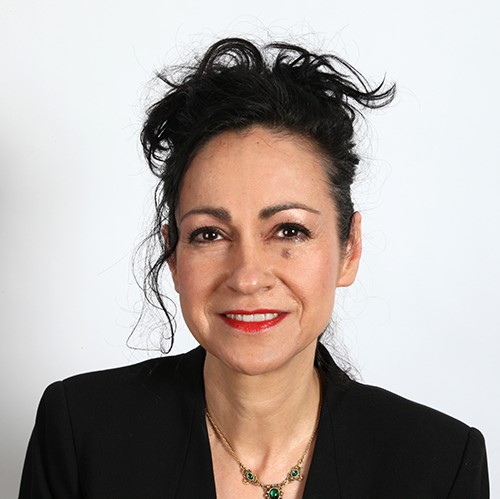
Associate Professor Foula Kopanidis
Marketing Group, School of Economics, Finance and Marketing.
Foula’s research interests include consumption and choice behaviour, selection criteria, ageing, well-being and quality of life.
Foula Kopanidis is an Associate Professor of Marketing at RMIT University and a steering committee member of the Consumer Wellbeing Research Group RMIT University. Foula is an experienced academic with extensive academic research anchored across the three disciplines of social marketing, wellbeing and education and her methodology is primarily quantitative.
Foula’s research is focused on the proactive health and wellbeing behaviour of consumers, including midlife healthy aging, age identity, age-based stereotype threat, life goals, procrastination, age related changes, and eLiteracy, welfare economics in understanding good housing design and location in aging well. Her research provides direction for developing health interventions and initiatives for greater impact on health and wellbeing outcomes for better aging. Her research has been featured across different media platforms including ABC Regional, 4BS Brisbane, 2GB Sydney, Inside Retail Australia, RetailWorld, Australian Technology News and The National Tribune.
Foula’s research has been published in peer reviewed journals including Higher Education, Research and Development, Higher Education Policy and Management, Education +Training, Women & Aging, Journal of Services Marketing, and Health Promotion Journal of Australia and has co-authored textbooks in Consumer Behaviour and Marketing. She has presented her research findings at both International and domestic conferences, including EMAC, ENHR WSMC and ANZMAC
More information on Foula’s research can be found under “Publications” or on this profile page.

Professor Mike Reid
Marketing Group, School of Economics, Finance and Marketing.
Mike’s research interests encompass healthy midlife and life purpose, aging and age-based stereotype threat, food literacy in parents and children, healthy eating and behaviour change in young adults, ICT and overcoming social exclusion in older Australian’s, financial literacy and wellbeing and economic abuse in relationships.
Mike Reid Professor of Marketing and a steering committee member of the Consumer Wellbeing Research Group, RMIT University. Mike has had more than 20 years of commercial and academic research experience employing mixed methods designs for a range of social marketing and consumer problems.
Mike’s research is focused on the health and wellbeing of consumers including healthy midlife and life purpose, aging and age-based stereotype threat, food literacy in parents and children, healthy eating and behaviour change in young adults, ICT and overcoming social exclusion in older Australian’s, financial literacy and wellbeing and economic abuse in relationships.
Mike has been recognised by RMIT for translating research into the public sphere. He has been awarded over $1.7m in competitive grants and industry research income including ARC Discovery, Sustainability CRC, VicHealth Innovation, Ecstra Foundation, Australian Communications Consumer Action Network (ACCAN) and a National Health and Medical Research Council (NHMRC) grant.
Mike’s research has been published in peer reviewed journals including, Nutrients, Information and Management, Research-Technology Management, European Journal of Marketing, Journal of Social Marketing, Psychology and Marketing, International Journal of Behavioural Medicine, Appetite, Journal of Advertising Research, Journal of Marketing Management, Australia and New Zealand Journal of Public Health, and Journal of Medical Internet Research, Journal of Services Marketing, amongst others.
More information on Mike’s research can be found under “Publications” or on this profile page.
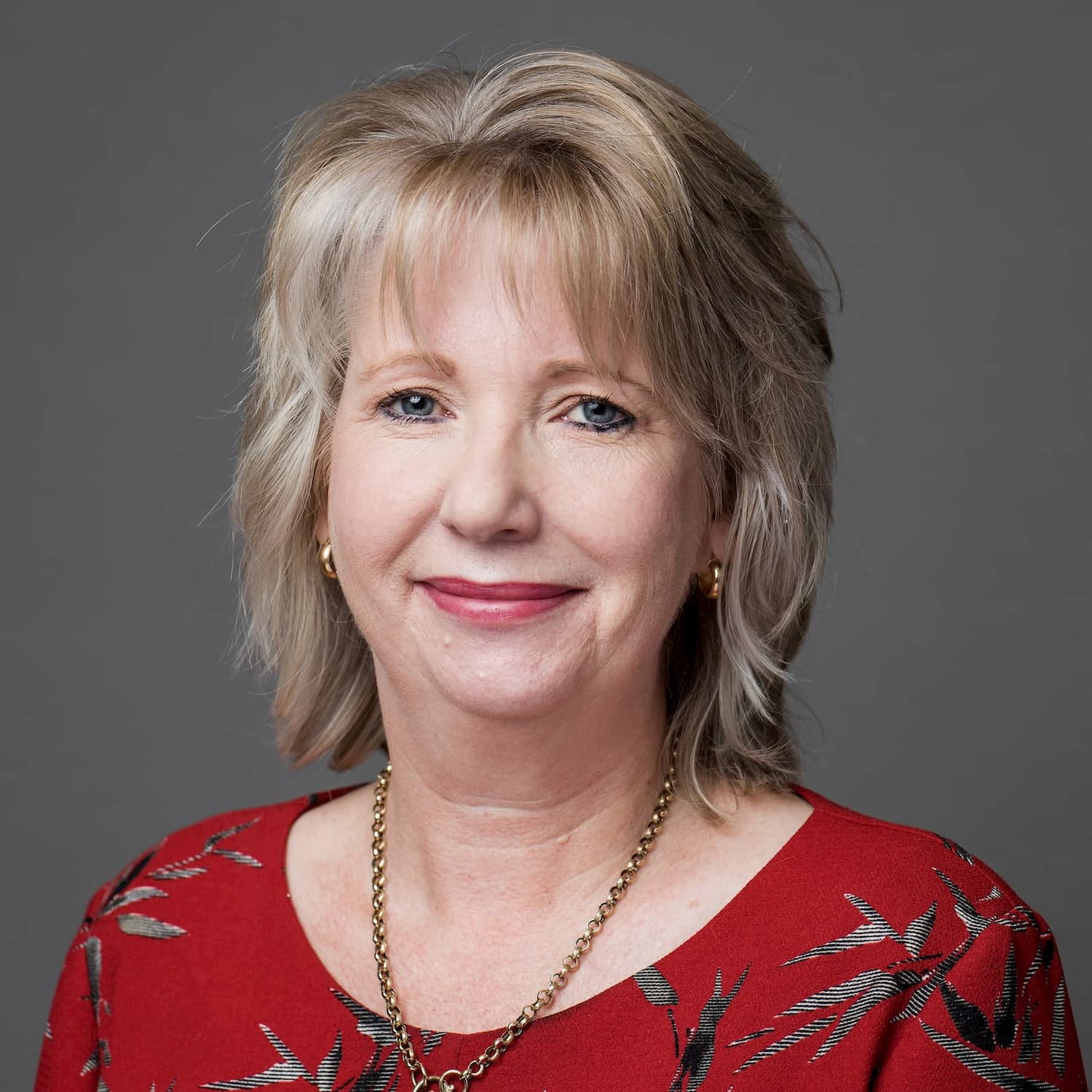
Professor Kate Westberg
Marketing Group, School of Economics, Finance and Marketing.
Kate’s research has explored health and wellbeing issues such as healthy eating and food literacy, alcohol promotion, family identity and gambling, healthy ageing and age-based stereotype threat, and social issues in sport (including alcohol advertising and unhealthy food).
Kate Westberg is a Professor of Marketing and founding member of the Consumer Wellbeing Research Group at RMIT University. Kate is a passionate educator and researcher. She is committed to providing students with industry-relevant, collaborative learning experiences. Her teaching has been recognised by University and National teaching awards and with a Fellowship of the Higher Education Academy (UK). Kate has recently launched an elective course in ‘Social Marketing and Consumer Wellbeing’ for RMIT’s Bachelor of Business students.
Kate's areas of research interest include social issues in sport (including alcohol advertising and unhealthy food); food literacy and intergenerational transmission of food skills and knowledge; ageing and wellbeing; and, family identity and risky consumption behaviour. Kate has been involved in consumer wellbeing-related projects in partnership with organisations such as the Alcohol and Drug Foundation, Australian Securities and Investments Commission, Football Victoria, the Foundation for Alcohol Research and Education, Melbourne City Mission, Special Broadcasting Services (SBS), the Victorian Cancer Council and the Victorian Health Promotion Foundation.
Kate’s research has been widely published in international journals including European Journal of Marketing, Health Promotion International, Journal of Business Research, Journal of Macromarketing, Journal of Services Marketing, Journal of Social Marketing, and Sport Management Review.
More information on Kate’s research can be found under “Publications” or on this profile page.
Members

Dr Torgeir Aleti
Marketing Group, School of Economics, Finance and Marketing. RMIT University.
Torgeir's research explores social environments and interactions. It encompasses the study of digital social environments, intergenerational decision-making, and the impact of cultural and societal interactions on learning and behaviour. While consumer-focused, his research incorporates socialisation theory and theories from related fields to elucidate social interactions.
Torgeir is a Senior Lecturer in Marketing and a member of the Consumer Wellbeing Research Group at RMIT University. He is also the co-founder of www.shapingconnections.org, a research program dedicated to bridging the technology gap and combating social isolation in older adults. With over 15 years of academic research experience, Torgeir employs mixed-method designs to address a variety of social marketing and consumer issues.
His research has made significant strides in consumer socialisation, particularly in understanding how family members make decisions collectively and learn consumer skills from one another. His earlier work demonstrates that consumer socialisation is a lifelong process, and society reaps benefits from reciprocal consumer socialisation into adulthood within families. More recently, his work has provided insights into the strategies older adults employ when learning about ICT from their broader social environments. Collaborating closely with his research participants, Torgeir has also made a significant contribution to the methodology of co-design research by publishing a 'how-to' paper in the Journal of Services Marketing. In a society like Australia, with an ageing population and growing negative stereotypes towards older adults, the importance of lifelong consumer socialisation is imminent.
Torgeir is recognised for producing impactful research that makes a difference to the end-users of his research findings. He has co-led several large externally funded research projects, including a recent grant from the Australian Communications Consumer Action Network (ACCAN).
Torgeir has prioritised high-quality research throughout his career and won two 'Emerald Literati Outstanding Paper Awards. He publishes in prestigious journals, including the Journal of Interactive Marketing, Current Issues in Tourism, Journal of Travel & Tourism Marketing, Australasian Marketing Journal, Journal of Vacation Marketing, Journal of Marketing Management, Journal of Services Marketing, and many others.
More information on Torgeir’s research can be found under “Publications” or on this profile page.
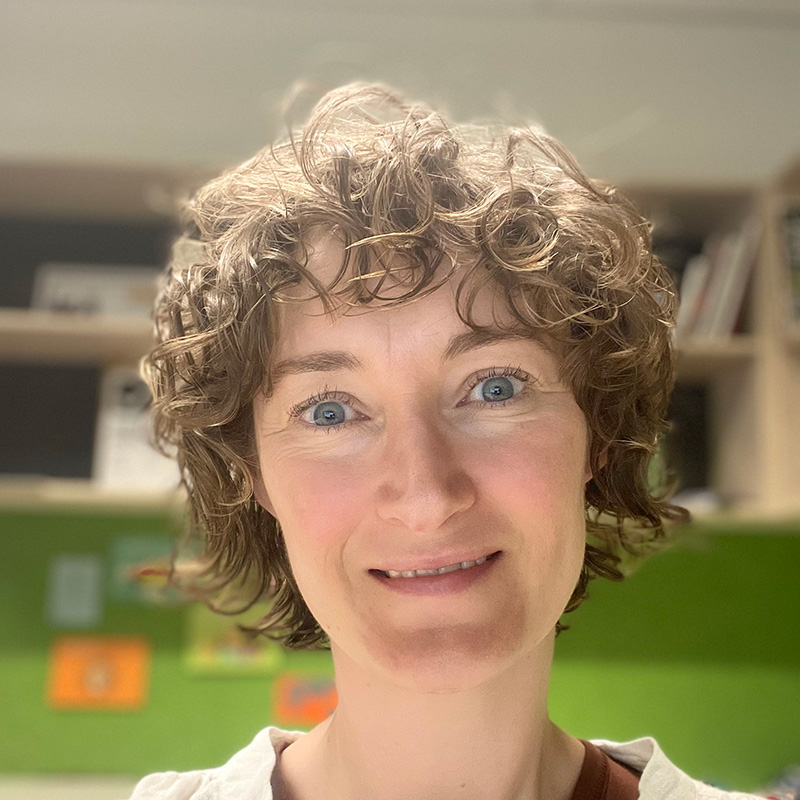
Dr Janneke Blijlevens
Marketing Group, School of Economics, Finance and Marketing.
Janneke works with students, industry partners, and research collaborators to develop and implement learning experiences, behavioural interventions, and designs that catalyse social change in the world. She tackles complex societal issues such as cultural inclusion, sexual harassment and assault, and financial literacy/well-being.
Janneke Blijlevens is a Senior Lecturer and Program Manager in Social Impact in the School of Economics, Finance and Marketing and a member of the Consumer Wellbeing Research Group, RMIT University. Social impact and interdisciplinarity are her middle name. She works with students, industry partners, and research collaborators to develop and implement learning experiences, behavioural interventions, and designs that catalyse social change in the world. Tackling complex societal issues such as cultural inclusion, sexual harassment and assault, financial literacy, and future-forward education requires the theoretical and methodological lenses of multiple disciplines.
Janneke’s experience in design and marketing schools, and background in cognitive (experimental) psychology, gives her a unique ability to understand different ways of thinking and working with collaborators from different backgrounds. She has, over the years, carefully crafted a methodology to solve complex societal problems and design innovative, evidence-based behavioural interventions that make a real impact in the world.
Janneke has an impressive track record in translating research into the public sphere through policy interventions, behavioural designs, and through speaking in the media. She has won over 20 design and communication awards, as well as academic awards recognising the social impact she has with her research. As a result, industry partners are keen to partner with Janneke to create solutions of behavioural and social nature. She has been awarded over $900,000 in competitive grants and industry research income including from Austria's Science System, the Consumer Policy Research Centre and the Australian Securities and Investment Commission. Her research has been featured across television, radio, print and online media, including outlets such as ABC News, 7 News, The Guardian, ABC Radio National, the Conversation and AFR.
Janneke actively contributes to the interdisciplinary scientific community as an editorial board member of Scientific Reports (Nature) for the Human Behavior section. Janneke’s research has been published in journals within marketing, psychology and design disciplines including, Psychology & Marketing, European Journal of Marketing, Journal of Behavioral and Experimental Economics, International Journal of Design, Acta Psychologica, Frontiers in Psychology, Journal of Marketing Education, amongst others.
More information on Janneke’s research can be found under “Publications”
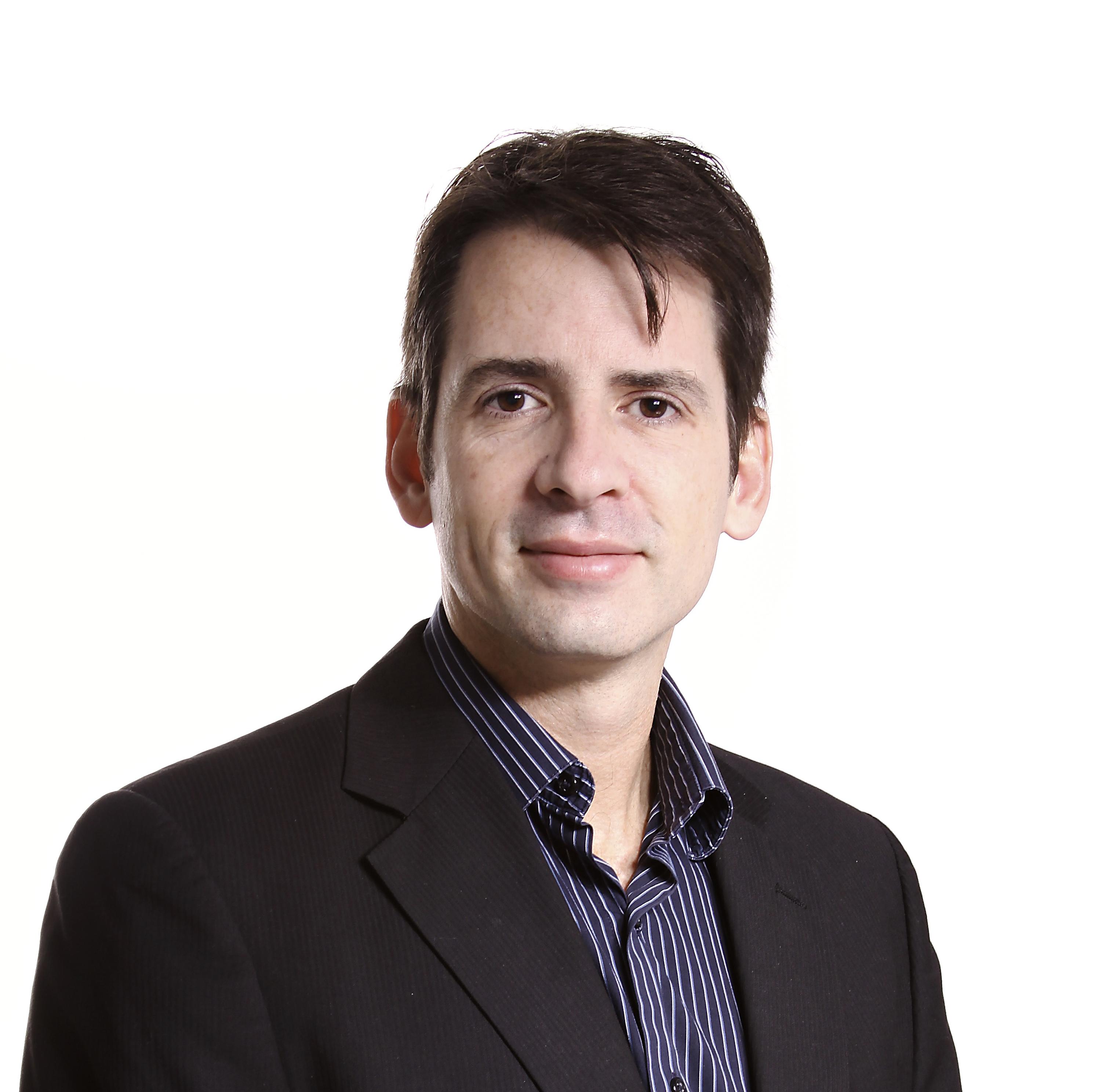
Associate Professor Bernardo Figueiredo
Marketing Group, School of Economics, Finance and Marketing.
Bernardo Figueiredo is an award-winning researcher and educator. To foster change, he engages with industry, government, and communities. Bernardo works with companies and communities to create social and organisational change.
To achieve his goals, he employs diverse methodological and design tools including exploratory assessments, market ethnography, netnography, co-design workshops, in-depth interviews, focus groups, cultural probing and sociocultural analysis to propose novel insights for better human experiences and market orientation.
Projects with industry include sociocultural analysis, consumer strategic insights, customer journey mapping, experience design, cultural branding, strategic and international marketing. Projects with communities and government include building transformational frameworks, strategic recommendations, and actionable toolkits for community engagement, behavioural change, and consumer wellbeing.
Bernardo’s research focus is on developing and applying powerful ethnographic and collaborative methodologies to gain novel insights into how people behave and relate in globalising marketplaces, and to use these insights to help transform the world. How do consumers interact with their environment and with each other to cocreate value for themselves and society? And how does the environment enable or disable these processes? His research includes value cocreation, collaborative networks and communities, consumer relationship with technology, consumer mobility, and social isolation and connectedness. Bernardo has received grants or funding from various organisations including ACCAN, Marketing Science Institute, ACR/Sheth, the University of the Third Age, and Life Activities Victoria. His research has been published in top academic outlets including the Journal of Consumer Research, Journal of Marketing, Journal of Business Research, and European Journal of Marketing.
More information on Bernardo’s research can be found under “Publications” or on this profile page.

Dr Sandy Fitzgerald
Marketing Group, School of Economics, Finance and Marketing.
Sandy is a Biomedical Health and Innovation (BHI) Research platform member. She is also a co-lead of the research area “Empowerment and Continuum of Mental Health Interventions” within the Mental Health Innovation Network . She is also a member of the Centre for Organisations and Social Chance (COSC) – Health and Wellbeing. Drawing from her service research background and using a service lens to investigate consumer well-being topics enriched by her applied knowledge of well-being practices, Sandy’s research interests are driven by impact and outcomes, which are the development of a personal well-being index for consumers; recommend well-being strategies that align with the needs of vulnerable groups and consumer well-being empowerment strategies.
Sandy is an experienced academic. In addition to her teaching and research work, she was seconded to work in Singapore for 4.5 years where she assumed an academic management role. A highlight of Sandy’s career is the invitation to attend the launch of RMIT’s Singapore Country Commitment at the Australian High Commission residence in Singapore.
She is a mixed-methods researcher. She embarks on research that aims to educate and empower consumers to be aware, manage and improve their well-being for their own and the betterment of society. Her research interests align with SDG Goal 3 (good health and well-being) and SDG Goal 4 (Quality Education). Sandy is active in professional networks. She is a Fellow of the Australian Marketing Institute, Certified Practising Marketing (CPM), and a member of The Research Society. Through collaboration with industry partners (Cancer Council Victoria and Ovarian Cancer Australia), she could share her knowledge and expertise to solve real-world issues. Sandy is also passionate about nurturing the next generation of leaders. She has successfully guided her students to complete industry projects that benefit community well-being, inspiring them to make a difference in the world. She has personally mentored numerous individual students. Under her mentorship, one of her mentees was awarded the Young Researcher of the Year Award 2023 by The Research Society.
More information on Sandy’s research can be found under “Publications” or on this profile page.
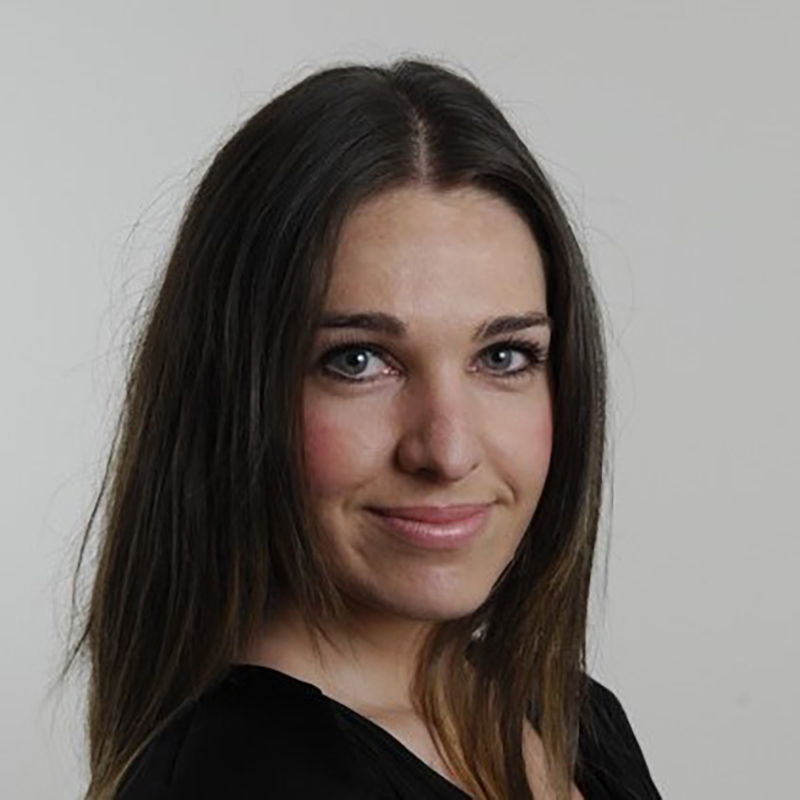
Associate Professor Lauren Gurrieri
Marketing Group, School of Economics, Finance and Marketing. RMIT University.
Lauren’s research examines gender, consumption and the marketplace, with a focus on inequalities and harms (re)produced and experienced across consumer and digital cultures. She adopts a gender lens across a range of wellbeing issues, including physical activity, gambling, vaccination and illness. She advocates a social change coalition approach to ensure social problems are addressed inclusively.
Lauren Gurrieri is an Associate Professor of Marketing at RMIT University and the Co-Director of the Centre for Organisations and Social Change.
Lauren’s research examines gender, consumption and the marketplace, with a focus on gendered inequalities in consumer and digital cultures. This includes gendered representations in advertising and social media; body norms and beauty ideals in consumer culture; violence against women and marketing; and the strategies used by women to resist and challenge exclusion and marginalisation in the marketplace.
She has authored over 40 peer reviewed journal articles, book chapters, case studies and commissioned reports and has been awarded over $600,000 in external research funding. Her research has been featured across television, radio, print and online media, including outlets such as ABC News, The Guardian, ABC Radio National, the Conversation and the Financial Times.
Lauren is an Advisory Board Member for GENMAC (Gender, Marketing and Consumer Behaviour) and is an Associate Editor at the Journal of Marketing Management. She has provided expert advice and invited presentations on gender equality to the Ministerial Council on Women's Equality (Victorian Government), Australian Association of National Advertisers, City of Melbourne and to various health and women's organisations.
More information on Lauren’s research can be found under “Publications” or on this profile page.
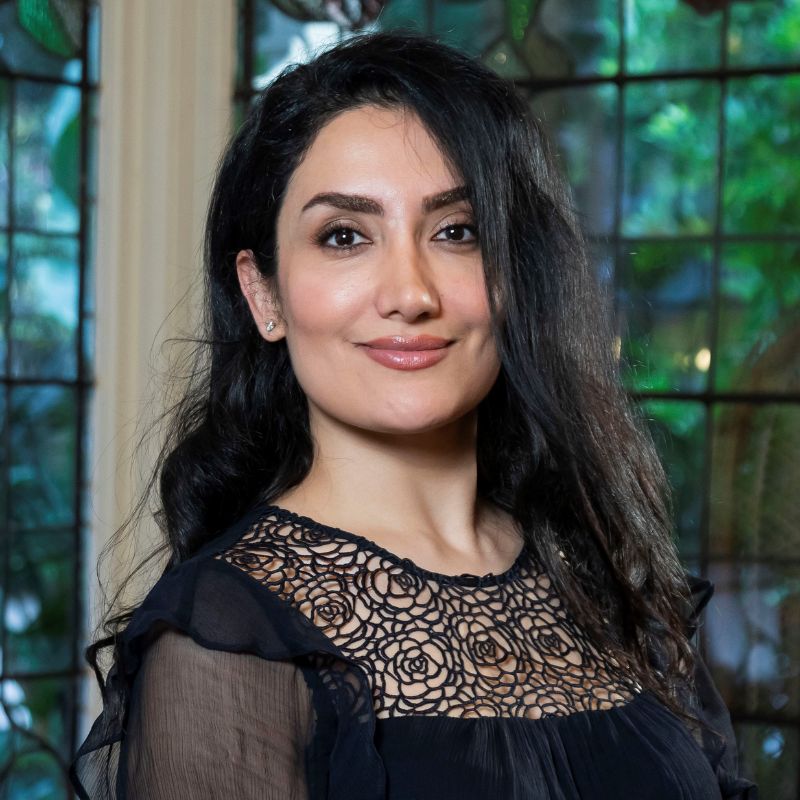
Dr Fatima Madani
Marketing Group, School of Economics, Finance and Marketing. RMIT University.
Fatima’s primary research focuses on Quantitative Marketing particularly in the realm of retailing, with a specific emphasis on consumer wellbeing and healthy consumption. Additionally, she delves into Consumer Analytics, examining topics such as alcohol consumption, healthy food consumption, consumption coping, and food packaging. Furthermore, her research extends to Consumer Behaviour, where she investigates areas like political ideology and the impact of tight and loose cultures on consumers’ behaviours.
Fatima is a lecturer in Marketing in RMIT university, where she shares her expertise with students eager to delve into the intricacies of consumer behaviour, retailing, and marketing analytics. Fatima is a member of Consumer Wellbeing Research Group (CWRG) in RMIT, where she collaborates with researchers to explore various facets of consumer behaviours and its implications for consumers’ wellbeing.
Her research interests span a wide spectrum, aligning closely with her teaching endeavours. Fatima's academic pursuits encompass quantitative marketing, consumer analytics, and consumer behaviour. She is particularly drawn to investigating themes such as store loyalty, fair-trade products, alcohol and healthy food consumption patterns, coping mechanisms in consumer decision-making, and the influence of packaging on consumer choices. Additionally, she explores the nuances of consumer behaviours in relation to political ideologies and cultural dynamics.
Currently, Fatima is deeply immersed in a groundbreaking study examining the effects of life transitions on consumer behaviour within the food and retail industries, with a specific focus on consumer-brand attachment. This research venture represents a significant contribution to the field, shedding light on how pivotal life events shape individuals' purchasing habits and their emotional connections to brands.
In addition, Fatima has secured both internal and external grants to support her research initiatives. These grants, obtained from sustainability centre at RMIT University and the Australian Securities and Investments Commission (ASIC), underscore the significance and relevance of her contributions to the field of consumer research.
In summary, Fatima's multifaceted role as a marketing lecturer, researcher, and member of the CWRG exemplifies her dedication to advancing knowledge in the realm of consumer behaviours and wellbeing.
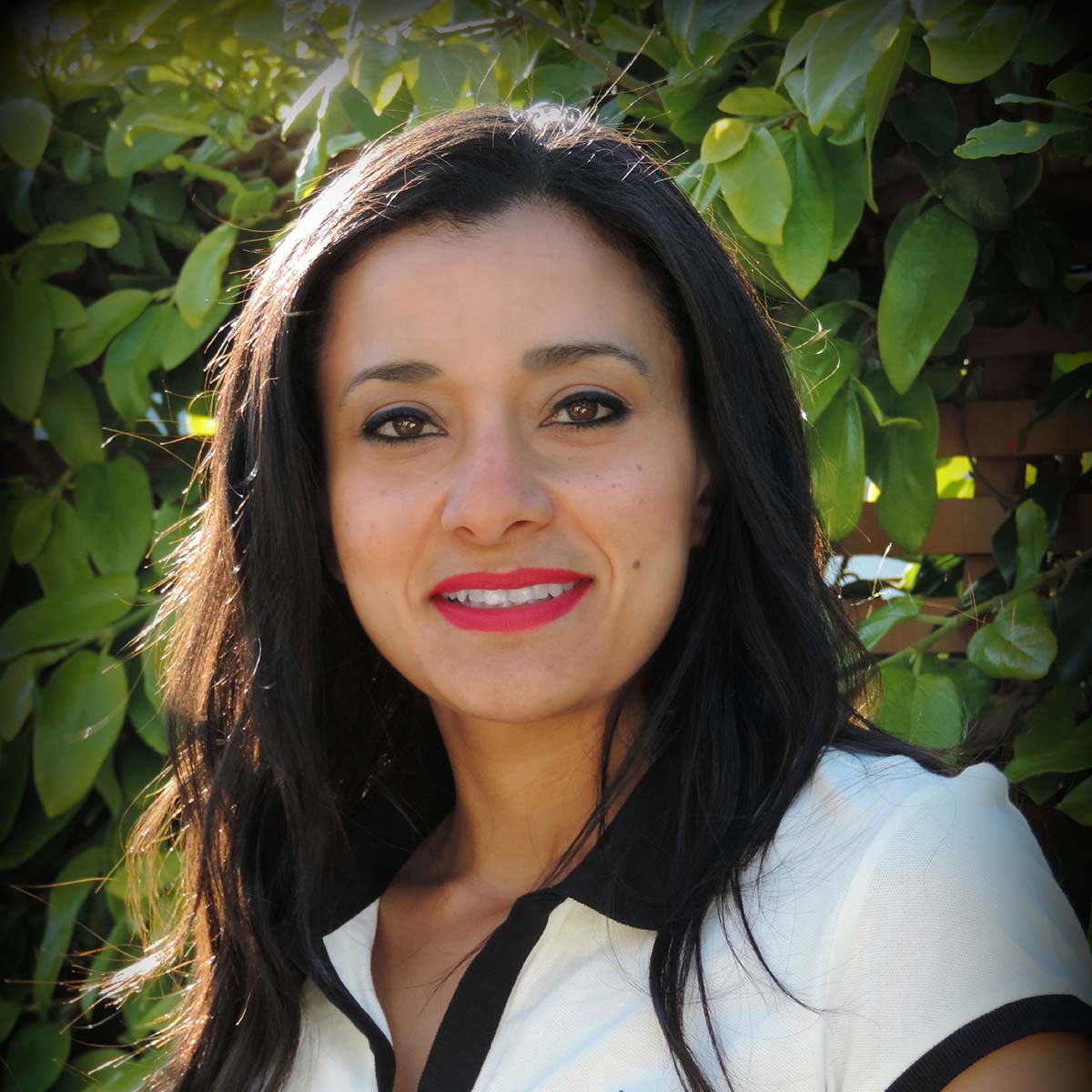
Dr Marian Makkar
Marketing Group, School of Economics, Finance and Marketing.
Marian’s research is anchored in consumer culture. She examines consumer effects on consumption communities, consumer experiences, and market exclusion and dispossession. In particular to market exclusion, her recent work on cultural appropriation looks at how brands appropriate cultures that are less powerful, disadvantaged minorities and indigenous groups.
Marian is a Senior Lecturer in Marketing. Her research is anchored in consumer culture and qualitative methods. She examines consumer (mis)behaviour effects on market development, consumption communities, consumer experiences, and market exclusion and dispossession. Her recent work on cultural appropriation looks at how brands appropriate cultures that are less powerful, disadvantaged and indigenous for their benefit. She is currently examining harmful and health-related contexts such as binge-eating and binge-watching. She translates her work to the marketing academy, external engagement, and dissemination through knowledge sharing at university seminar series, media outlets and with industry. Her work has also been featured across television, print, and radio in Australia and New Zealand, including ABC Radio National, Sunday Morning Herald, The Age, and Australian Financial Review. She has also contributed with expert articles in The Conversation, Ragtrader and AD News.
Marian has also attracted internal and external funding. She is also a recipient of research grants and awards such as The Royal Society Te Apārangi Early Career Research Excellence in New Zealand and the 2023 Vice Chancellor’s Award for Programs and Services that Enhance Learning. Her research has been published in leading journals including the European Journal of Marketing, Journal of Business Research and Journal of Retailing and Consumer Services and she presented her research at several prestigious international academic conferences including the Association of Consumer Research, Consumer Culture Theory Consortium and Australian and New Zealand Marketing Academy Conferences.
Marian started her career in marketing and public relations working with over 14 years of industry experience in marketing and communications. She worked in public relations with several agencies (JWT, Weber Shandwick, bare.PR and Acumen Republic) handling FMCG international brands, beauty products and luxury automotive brands that spanned the Middle East, Africa and New Zealand. She was also a Marketing Manager for an international luxury retailer (Alfred Dunhill Ltd) and a marketing consultant for Arthur Murray Ballroom Dance Studios.
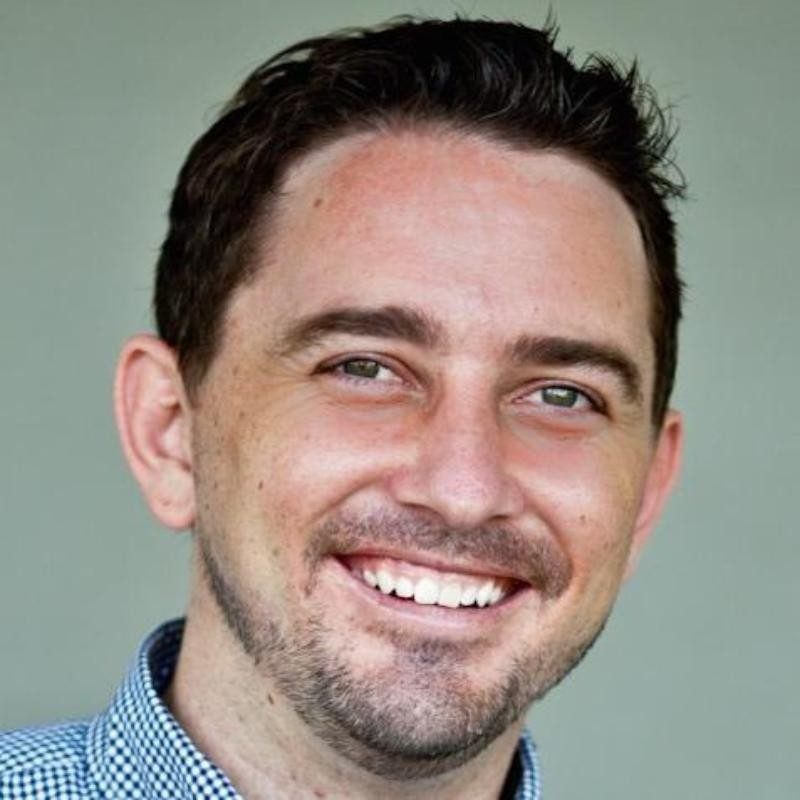
Associate Professor Lukas Parker
3C, School of Media and Communication.
Lukas is an Associate Professor in the School of Media and Communication at RMIT University, Australia, where he leads 3C, Communication and Change Co-Lab. He is a social marketing and communication scholar, and his research sits at the nexus of behaviour change, communicating health and digital communication.
Associate Professor Lukas Parker is a leading social marketing and advertising scholar whose research sits at the nexus of behaviour change, communicating health and digital communication. Lukas is the head of 3C (Communication and Change Co-Lab) and is a member of the End Food Waste Cooperative Research Centre. Leading teams of researchers, his research addresses pressing social problems related to health and sustainability. He has over fifty peer-reviewed publications including influential co-authored books Social Marketing and Advertising in the Age of Social Media (2020) and Social Marketing and Behaviour Change: Models, theory and applications (2014) which guide social marketing practitioners and scholars.
Lukas’ interests are social and government marketing and especially the influence of communication on health behaviours and sustainable consumption. He has published articles and books extensively in the fields of health communication, behaviour change and social marketing. His health communication research addresses pressing social problems, including promoting healthier masculinities, healthy eating, personal hygiene, road safety and food waste reduction.
Lukas’ research is built on partnership and funding and has attracted over a million dollars in research grants and funded projects. HIs research teams undertake research for funding partners including Sustainability Victoria, New South Wales EPA, Green Industries South Australia, Department of Environment and Science (Qld.), Department of Families, Fairness and Housing (Vic.), VicHealth, Pacific Environments, Australian Conservation Foundation, Australian Securities and Investments Commission (ASIC), the Victorian Independent Broad-based Anticorruption Commission (IBAC) and U3A (University of the Third Age).
More information on Lukas’ research can be found under “Publications” or on this profile page.

Dr Daniel Rayne
Marketing Group, School of Economics, Finance and Marketing.
Daniel’s research is concerned with the impact of social programs on consumer reactions. Specifically, Daniel examines how corporate social responsibility, social partnerships and brand activism shapes consumer’s reactions to brands and the social causes these brands support.
Daniel is a Lecturer in Marketing and a member of the Consumer Wellbeing Research Group at RMIT University. Daniel is a mixed-methods researcher and is fascinated by the consumer experience. As such, most of Daniel’s research work is dedicated to consumer behaviour with a focus on how consumers react to various social initiatives enacted by brands. Of particular concern is the consumer reaction to social movements, organisations or causes.
Daniel has published work in the International Journal of Sports Marketing and Sponsorship, Journal of Consumer Behaviour, Journal of Strategic Marketing, Journal of Business Research, Journal of Marketing Management and the Australasian Marketing Journal to name a few.
Currently, Daniel is researching brand activism and the overall impact this has on the social movements brand’s support. Aligned with SDG goal 17, he is also examining various topics concerned with social partnerships and how such partnerships should be strategically developed and enacted.
In addition, Daniel has secured both internal and external teaching and research grants which demonstrates his commitment to the field of marketing.
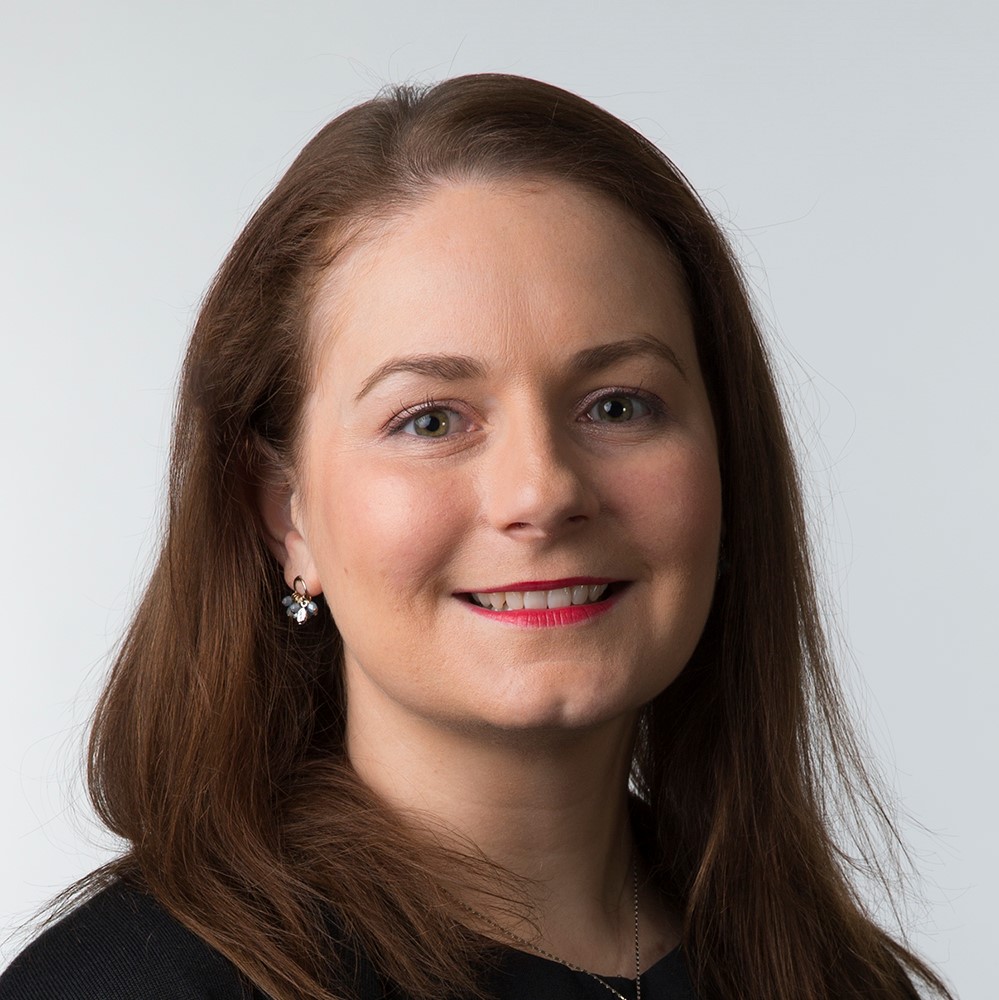
Dr Linda Robinson
Marketing Group, School of Economics, Finance and Marketing. RMIT University.
Linda’s current research focuses on the wellbeing of service employees, the consumption choices of ageing and low-resourced consumers, and consumer obsessions.
Linda’s research interests lie at the intersection of marketing, management and psychology, where she has a special interest in services and social marketing. Her current research focuses on the wellbeing of service employees, the consumption choices of ageing and low-resourced consumers, and the practices influencing consumer obsessions. Linda is skilled in both qualitative and quantitative research methods and has experience managing large multi-method research projects in conjunction with industry partners. Her research has attracted media attention, appearing in publications such as Marketing magazine and BOSS Magazine (AFR).
More information on Linda’s research can be found under “Publications” or on this profile page.

Adjunct Professor Roslyn Russell
School of Economics, Finance and Marketing
Roslyn’s is the Principal Research and Advocacy Advisor, Good Shepherd, Australia and New Zealand. Roslyn’s research and position has a strong focus on financial education and interventions that promote the wellbeing of lower income consumers, women, and financially vulnerable people.
Roslyn has held a research only academic position in the School of Economics, Finance and Marketing and has been researching financial wellbeing in Australia for more than fifteen years. Roslyn’s research and her current position has a strong focus on financial education and interventions that promote the wellbeing of lower income consumers, women, and financially vulnerable people. Roslyn has received several ARC grants with the most recent Discovery grant exploring the financial wellbeing of women in Australia. Other research focuses on payday lending in Australia; financial wellbeing of older people, people with disability and autistic individuals.
More information on Roslyn’s research can be found under “Publications” or on this profile page.

Professor Con Stavros
Marketing Group, School of Economics, Finance and Marketing.
Con’s research reflects a strong interest in contemporary marketing communications, media and branding strategy, the business and marketing of sport, and the critical role sport can play both directly and indirectly in consumer well-being.
Con is a Professor of Marketing, and is currently the Deputy Dean, Learning & Teaching in the School of Economics, Finance & Marketing.
He possesses a global understanding of contemporary marketing practice, particularly in the application of strategic concepts in communication and the development and function of marketing both through, and of, sport. Favouring qualitative methodologies, he has published books, book chapters and in a wide range of journals, including the Journal of Social Marketing, Journal of Sport Management, Drug & Alcohol Review, Journal of Services Marketing, Substance Use & Misuse, Journal of Product and Brand Management, Journal of Business Research, and the International Review for the Sociology of Sport. Con was Editor-in-Chief of the international journal Sport, Business & Management between 2015 and 2020.
He has been a Chief Investigator on many externally funded grants that have considered social impact and consumer behaviour, including with bodies such as VicHealth, the Foundation for Alcohol Research & Education (FARE), the Alcohol & Drug Foundation (ADF), and the Australian Securities & Investments Commission (ASIC).
As one of Australia’s foremost commentators on marketing matters, he features in the media on a regular basis. In 2017 he was an inaugural inductee in the RMIT media ‘Hall of Fame’ and is often sought out by industry to provide guidance on issues relating to branding and marketing.
More information on Con’s research can be found under “Publications” or on this profile page.
Higher Degree by Research Students
Joyce Lau
The World Health Organization (WHO) projects that the global population aged 60 and above is set to double by 2050, reaching an estimated 2 billion individuals. This demographic shift, evident in developed countries such as Australia, underscores the need to address the distinct health challenges faced by older adults. One approach involves promoting healthy ageing with consumer health technology to support independent living and enhance the quality of life for older adults.
Against the research backdrop, PhD candidate Joyce Lau, is examining the factors that influence the adoption and continuous usage of consumer health technology among older consumers, encompassing health and wellness apps as well as wearables. Aligned with the Australian Preventative Health Strategy 2030, Joyce' investigation focuses on comprehending how consumer health technology empowers older consumers to actively manage their health and wellbeing.
By employing a mixed-method approach, Joyce endeavours to gather insights from both older consumers and experts that representing various facets of older consumers' education and health. The study shall unveil the factors associated with the health and wellbeing goals of older consumers, along with their experiences, barriers, and motivations in adopting, learning, curating, and continuing the use of consumer health technology. The outcomes will inform marketing practitioners, technology developers, healthcare professionals, and policymakers, providing valuable guidance for supporting older consumers in engaging with consumer health technology to manage and enhance their health and wellbeing.
Erik Okerstrom
Erik’s research interest is in wellbeing and the role consumption plays in its support and maintenance. His thesis in titled Midlife Men, Consumption and Wellbeing. Erik was a founding member of the personal wellbeing index project (2001) at the Australian Centre on Quality of Life (Deakin University) sponsored by Australian Unity, contributing to sample design and data collection methodology as a member of the Australian Unity team.
Erik has over 30 years experience in research. 20 years in market and social research (supplier side) with 10 years prior experience in corporate marketing analysis & research (client side).
Erik has been commissioned to conduct numerous research projects in a variety of commercial and social research sectors.
Public sector: Local government & community, Education (K-12 to tertiary), consumer detriment, immigration (including detention), regulatory environments, workers compensation & OHS, environment, transport, consumer affairs, health & hospital patient satisfaction, disability, public perceptions, justice and communications, program evaluation, alternative dispute resolution.
Commercial: Retail, education, financial services, regulation, consumer perception and segmentation, customer insights/journey, manufacturing, engineering, health and aged care, retirement living.
Erik is the managing director and founder of Akerstream Market & Social Research
Recent Graduates
Dr Rachel Peile
This research examines the importance of family identity when a family is living with a child with a chronic illness. Family identity is important because it reflects how the family functions and operates in relation to its environment to shape the choices families make, their behaviours and how outcomes are negotiated. Family identity is constantly changing and is impacted by all family members.
This topic is investigated through the lens of social marketing and integrates significant research in marketing, paediatrics, public health, family functioning and psychology. Social marketing seeks to develop and integrate marketing concepts with other approaches to influence behaviours to benefit individuals and the community for the greater good. This research constitutes a starting point to expand and facilitate a deeper understanding of the tensions facing families both internally and externally to design tools and interventions in the future.
This research utilises type 1 diabetes as a case study to examine both the practitioner and family perspectives living with this condition to understand the tensions and challenges experienced. These findings contribute to the development of an innovate family identity framework to support families considering the socio-ecological landscape. This framework can be used by families and practitioners to help strengthen family identity and increase family resilience.
As a starting point, social marketing interventions are suggested to reduce the burden of care to help vulnerable families live well and recommendations are offered to policy and advocacy groups on how they can support families as they face the challenges of living with chronic illness.
Bronwyn Bruce
PhD candidate Bronwyn Bruce is investigating how investment strategies can be used by millennial women to narrow the superannuation gap when they reach retirement. Currently at 37%, the superannuation gap exists predominantly due to the way hegemonic time is used to organise the individual toward maximum productivity. This puts women at a disadvantage to men as they often take time out of the workforce due to childbearing and caring responsibilities. Bronwyn’s research proposes to explore how Bandura’s sources of self-efficacy (1997) influence women’s preparedness to undertake aggressive investment within their superannuation before the age of 40. Investing in higher-return growth assets like stocks is most effective if undertaken before a woman is in her mid-50s when she has time on her side to ride out any stock market corrections or crashes long before retirement. However, millennial women have lower levels of financial literacy and are less willing to undertake investment risk, which puts them at a disadvantage when it comes to making decisions about optimal asset allocation within superannuation. By addressing the consumption behaviours of millennial women towards their superannuation when they are younger, it may enhance their quality of life and financial wellbeing when they are older.
Sanjeewa Prad Wijayaratne
The rise of obesity has focussed attention towards obesogenic environments, in particular the home environment, which is an important setting for the development of dietary patterns and eating preferences. In this environment, the dietary gatekeeper is the person primarily responsible for food shopping and preparation and therefore determines the food that will be consumed by the family in the home.
Food literacy is an emerging concept used to describe the everyday practicalities associated with healthy food intake. However, in the extant literature, there is a lack of research assessing food literacy and the role of the dietary gatekeeper’s food literacy in the household domain.
Using a mixed-method approach, my research adopts a public health and social marketing perspective, to investigate how the dietary gatekeeper’s food literacy influences healthy food consumption in the home environment. The research involves three stages. First, a quantitative analysis of an existing data set of 756 Australian dietary gatekeepers has been undertaken to establish a valid measure of food literacy and determine how food literacy impacts healthy dietary behaviour and dietary barriers.
Then using the quantitative findings as a guide, the second stage will explore food literacy further in a qualitative study of dietary gatekeepers to provide greater understanding on the different aspects of food literacy used by gatekeepers to overcome dietary barriers in the home environment.
In the final stage, using the insights gained from the qualitative study a food literacy questionnaire will be developed to measure how food literacy capabilities are transferred in the home environment. To date there has been a lack of instruments in the literature that measure the transmission of food literacy skills and knowledge within the family.
Nhat Tram Phan-Le
Mindfulness has recently drawn the attention from scholars in the field of sustainable consumption with four potential mechanisms: to disrupt the routines, to narrow the intention-behaviour gap, to nurture non-materialistic values, and to enhance well-being. However, the impact of mindfulness on broader social and world view levels of sustainable consumption is currently under-researched. The purpose of this research project is to explore the influence of mindfulness on sustainable consumption at three levels: individual, social, and world view. Specifically, the research studies the impact of yoga on food waste behaviour in Vietnam and Australia.
The research is mixed-method research with three stages. The first stage is a series of systematic reviews to identify the definition and measurement of mindfulness and to develop an ecological conceptual framework that illustrates the influence of mindfulness on sustainable consumption. The second stage is qualitative research comprises of in-depth interviews and observation to gain insights to refine the ecological framework. The final stage is quantitative research to examine the relationship between the mechanisms in the ecological framework.
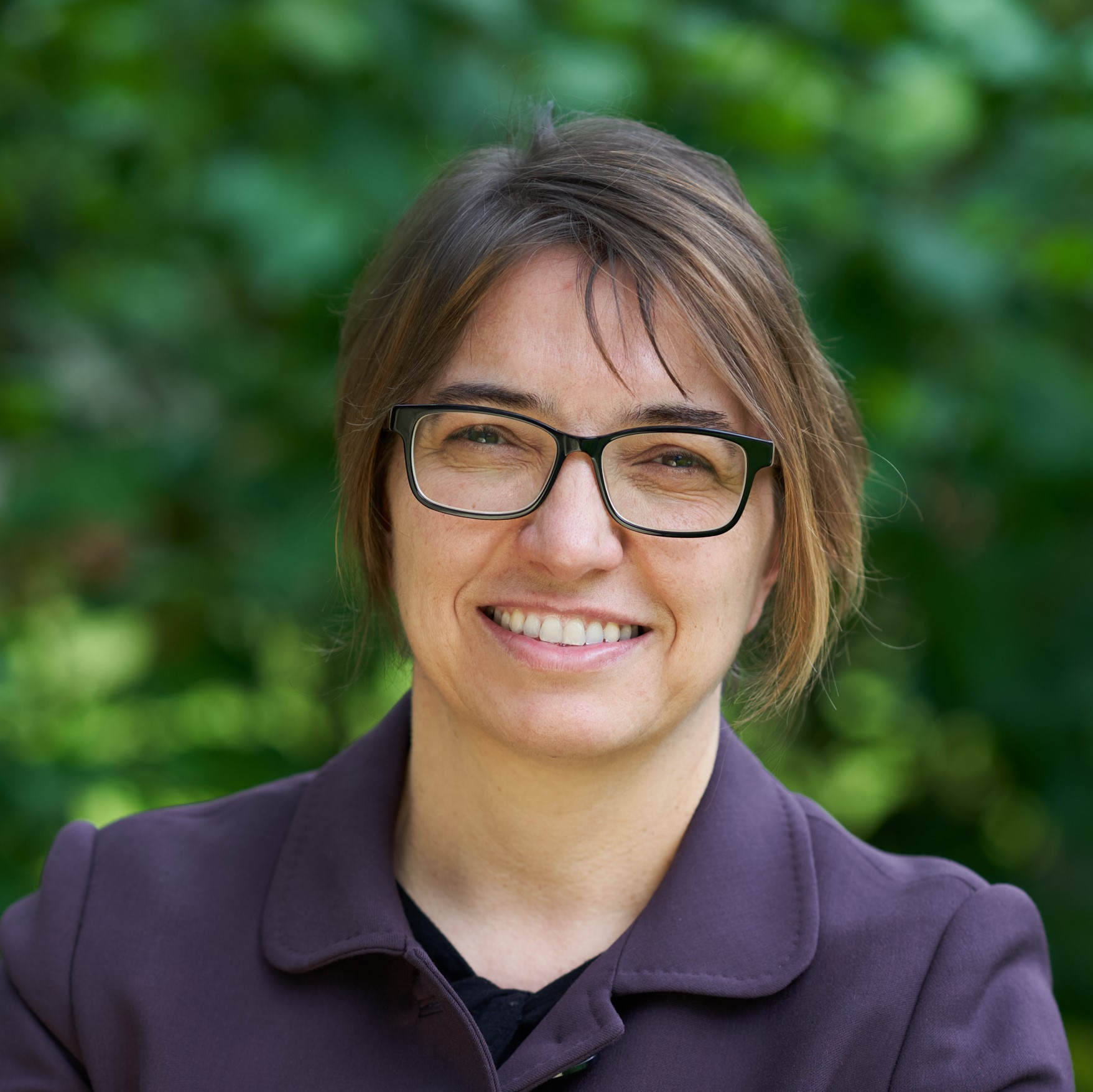
Dr Jozica Kutin
School of Economics, Finance & Marketing
Jozica is General Manager Policy, Advocacy & Service Impact, Good Shepherd, Australia and New Zealand. Jozica’s research has focused on financial capabilities, financial wellbeing and the evaluation of financial education programs.
Jozica completed her PhD in the School of Economics, Finance & Marketing, RMIT University and holds a master’s degree in forensic psychology from Monash University. With her background in forensic psychology, Jozica has worked in diverse research areas such as asthma epidemiology, prisons, and adult and youth drug and alcohol services. Since 2013, at RMIT, her research has focused on financial capabilities, financial wellbeing and the evaluation of financial education programs. Her PhD research investigated the prevalence and lived experience of economic abuse in young adult relationships using both quantitative and qualitative research methods for which she was awarded the RMIT HDR Prize for Research Impact in 2018. With funding from the Ecstra Foundation, Jozica translated her PhD research, in partnership with YLab and Today Design, into an online toolkit for young adults. Jozica is particularly interested in relationship-based financial wellbeing and using social marketing strategies to prevent economic abuse. Jozica’s recent publications appear in the Australian and New Zealand Journal of Public Health, the Journal of Social Marketing and Children and Youth Services Review.


